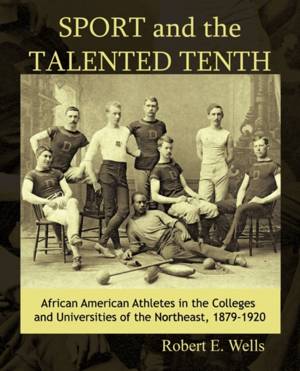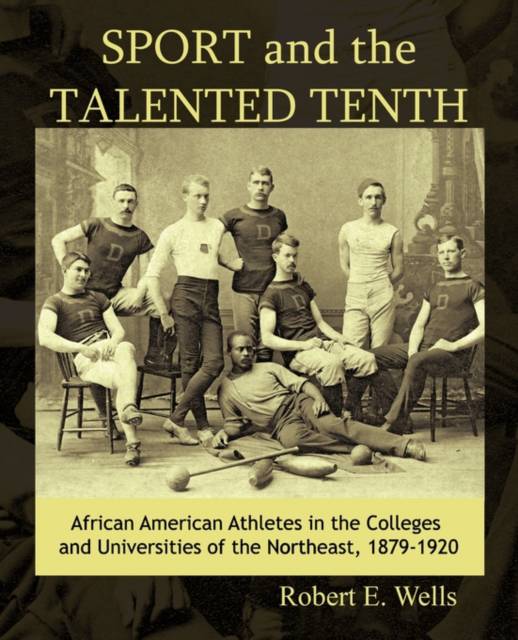
- Afhalen na 1 uur in een winkel met voorraad
- Gratis thuislevering in België vanaf € 30
- Ruim aanbod met 7 miljoen producten
- Afhalen na 1 uur in een winkel met voorraad
- Gratis thuislevering in België vanaf € 30
- Ruim aanbod met 7 miljoen producten
Sport and the Talented Tenth
African American Athletes at the Colleges and Universities of the Northeast, 1879-1920
Robert E WellsOmschrijving
Sport and the Talented Tenth is the first book to focus entirely on early African American athletes in predominantly white colleges and universities. Bob Wells has discovered 145 black men who, between 1879 and 1920, performed in athletics at 39 colleges in the New England states, New York, New Jersey and Pennsylvania. Their athletic experiences included involvement in 13 sports and are detailed game-by-game, meet-by-meet.
Attention is paid to the problems they faced - the prejudice, discrimination and outright racism of classmates, teammates, opposing athletes, and the unwritten social policies of opposing administrations. An examination of their family backgrounds, athletic achievements, wartime service and post -graduate careers is discussed in a concluding synthesis.
Specificaties
Betrokkenen
- Auteur(s):
- Uitgeverij:
Inhoud
- Aantal bladzijden:
- 648
- Taal:
- Engels
Eigenschappen
- Productcode (EAN):
- 9781440175510
- Verschijningsdatum:
- 18/01/2010
- Uitvoering:
- Paperback
- Formaat:
- Trade paperback (VS)
- Afmetingen:
- 190 mm x 235 mm
- Gewicht:
- 1097 g

Alleen bij Standaard Boekhandel
Beoordelingen
We publiceren alleen reviews die voldoen aan de voorwaarden voor reviews. Bekijk onze voorwaarden voor reviews.











